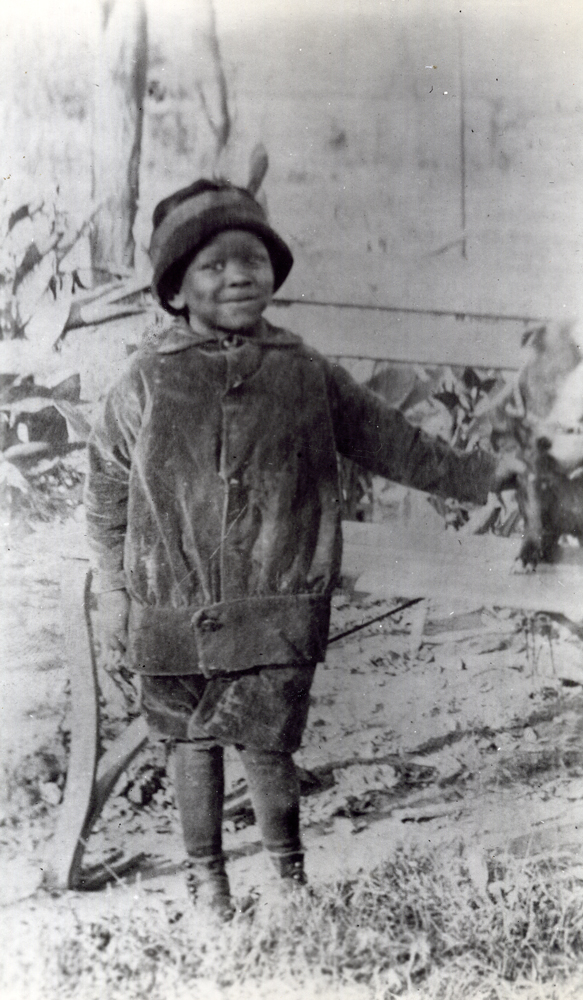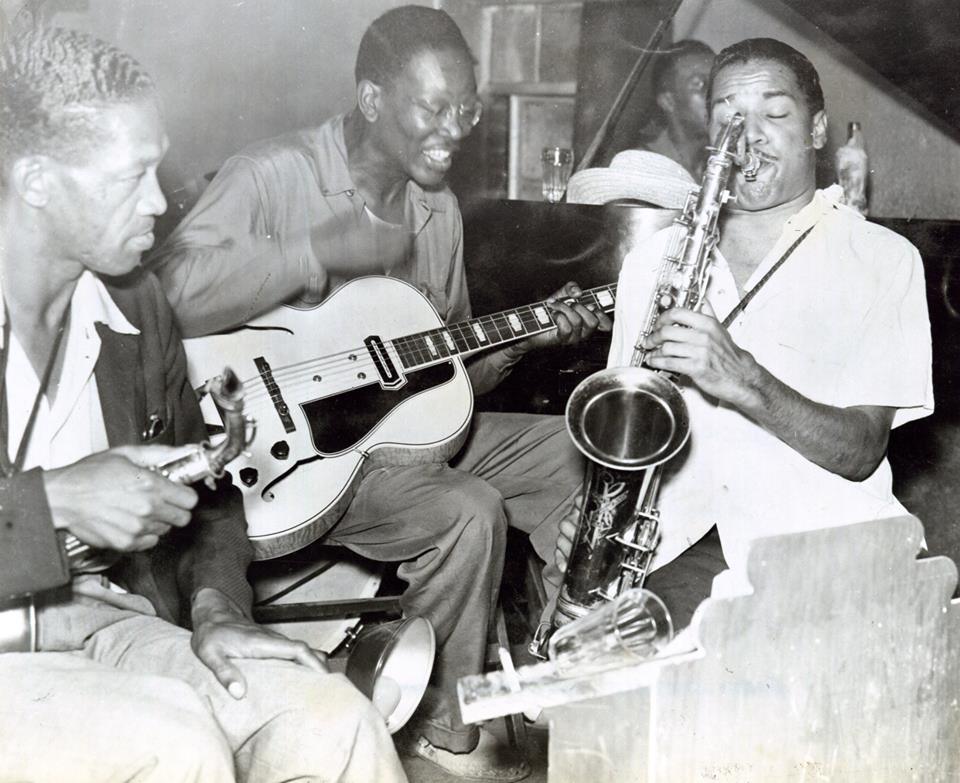The Encyclopedia of Oklahoma History and Culture
CHRISTIAN, CHARLES HENRY (1916–1942).
In a short life of just twenty-five years, Charlie Christian forever impacted the world of music. Born July 29, 1916, in Bonham, Texas, to Clarence and Willie Christian, Charlie Christian moved with the family to Oklahoma City in 1918. He followed the musical tradition of his older brothers and father and learned to play the trumpet before he was ten. By age twelve he switched to the guitar, making his own crude instrument from cigar boxes in manual training class, as novelist and family friend Ralph Ellison recalled.
Christian attended Douglass High School in Oklahoma City and learned his music on Deep Deuce, or Northeast Second Street, an incubator for many of the nation's jazz greats. In the 1930s he played string bass with Alphonso Trent's band. Then in 1937 he discovered the instrument with which he would be forever associated—the electric guitar. Taught by Eddie Durham, of the Count Basie band, and Jim Daddy Walker, of the Jap Allen group, Christian took his lessons to a higher level, changing the electric guitar from a rhythm instrument to an important solo presence in the orchestra. His distinctive stylistic innovations had an undeniable influence on generations of jazz and popular music guitarists.
Christian was "discovered" by music promoter John Hammond. In 1939 Hammond's brother-in-law, Benny Goodman, leader of one of the famous big bands of the swing era, introduced Christian to America. The young guitarist played primarily with the Goodman Sextet and, less often, with the full orchestra.
While touring the Midwest in the summer of 1941, he began showing severe signs of tuberculosis, a malady blamed on years spent in an Oklahoma City slum apartment house. He entered the Seaview Sanatarium at Staten Island, New York, and he died there on March 2, 1942, at the age of twenty-five. Even though he recorded for only three years, his influence has been felt by generations of musicians. Since 1985 the Charlie Christian Jazz Festival has been an annual event in Oklahoma City.
See Also
AFRICAN AMERICANS, BLUE DEVILS, BLUES, ROBERT LEE DUNN, RALPH WALDO ELLISON, JAZZ, BARNEY KESSEL, SECOND STREET
Browse By Topic
African AmericansRecreation and Entertainment
Explore
PeopleAfrican American
Musicians
Learn More
Bob Burke and Vicki Miles-LaGrange, A Passion for Equality, The Life of Jimmy Stewart (Oklahoma City: Oklahoma Heritage Association, 1999).
Ralph Ellison, Shadow and Act (New York: Random House, 1964).
Leonard Feather, The Book of Jazz: From Then Till Now (Rev. ed.; New York: Dell Publishing Co., 1976).
William W. Savage, Jr., Singing Cowboys and All That Jazz: A Short History of Popular Music in Oklahoma (Norman: University of Oklahoma Press, 1983).
Citation
The following (as per The Chicago Manual of Style, 17th edition) is the preferred citation for articles:
Bob Burke, “Christian, Charles Henry,” The Encyclopedia of Oklahoma History and Culture, https://www.okhistory.org/publications/enc/entry?entry=CH060.
Published January 15, 2010
© Oklahoma Historical Society



